

With so many cryptocurrencies and tokens being launched daily, it can be hard to keep track of everything. When someone hears the word “cryptocurrency,” they immediately think about Bitcoin (BTC) or Ethereum (ETH), but there are also several projects out there, so you need to get a grasp of all those crypto-related jargon.
For starters, how do you understand all the terminologies used in the cryptosphere? This is where a crypto glossary comes in.
A crypto glossary is a list that contains the basic explanations of many cryptocurrencies, tokens, and their underlying technology. In the spirit of helping beginners and those familiar with crypto get a grasp on the basics, we have developed this glossary to help you understand some of the major concepts associated with digital currencies.
Airdrop
Airdrops are a type of marketing technique that crypto firms employ to provide tokens to active traders either for free or in return for little to no promotional activity.
All-Time-Low
All-Time Low, popularly referred to as ATL, is the lowest a coin has ever traded at. The all-time low (ATL) of a currency is usually considered when trading because it can be a significant price motivation for market players.
All-Time-High
A cryptocurrency’s highest price in its trading history is referred to as its “all-time high” (ATH). Since an asset’s upward trend can be easily measured, all-time highs are simple to identify.
Anti-money Laundering (AML)
AML is the name of a set of laws, rules, and procedures designed to stop people from passing off funds obtained illegally as legitimate income.
Bitcoin (BTC)
A type of digital currency in which encryption techniques are used to regulate the generation of units of currency and verify the transfer of funds, operating independently of a central bank. Bitcoin was created in 2009 by an unknown person(s) using the alias Satoshi Nakamoto. The system works without a central authority: the peer-to-peer network regulates Bitcoins, and transactions are verified by network nodes. Bitcoins can be obtained through mining or in exchange for other assets.
Bitcoin address types
There are three bitcoin address formats currently in use:
- P2PKH addresses start with the number 1.
Example: 1BvBMSEYstWetqTFn5Au4m4GFg7xJaNVN2. - P2SH addresses start with the number 3.
Example: 3J98t1WpEZ73CNmQviecrnyiWrnqRhWNLy. - Bech32 addresses also known as “bc1 addresses” start with bc1.
Example: bc1qar0srrr7xfkvy5l643lydnw9re59gtzzwf5mdq. - QR Codes can also be used as a wallet address.
Bitcoin wallet address
Bitcoin can be transferred to and received from a Bitcoin wallet address which is a combination of letters and numbers. A Bitcoin wallet address can be made publicly available, similar to an email address, and it can be given to others who want to transfer you Bitcoin.
A sample Bitcoin wallet address is shown below:
3F1tAaz5x1HUXrCNLbtMDqcw6o12Nn4xqX
Additionally, a wallet address can be displayed as a QR code.
Block chain, blockchain
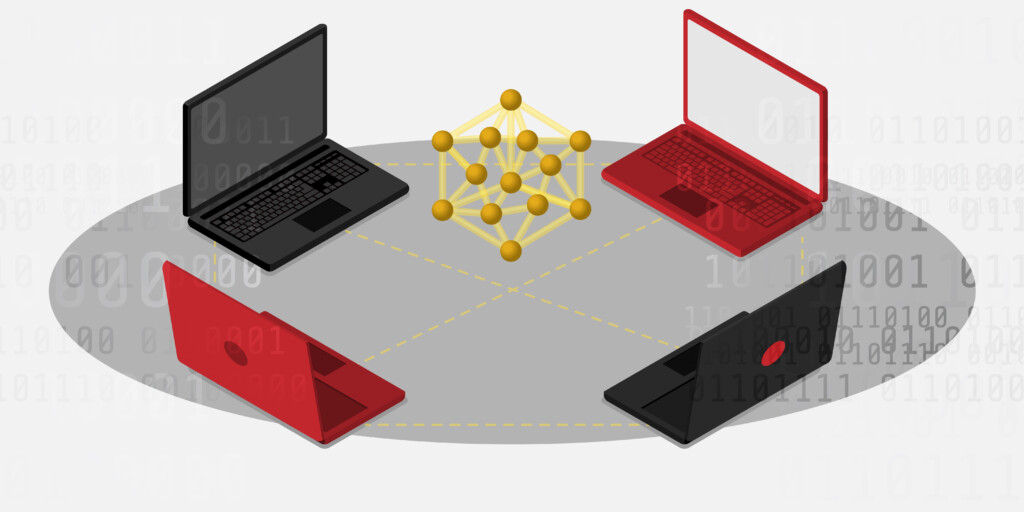
The Bitcoin block chain is a publicly accessible log of all Bitcoin transactions. The phrase may also be referred to as a “public ledger.” The block chain displays every transaction data for bitcoin in chronological order, starting with the very first transaction. Anyone can download and publicly review the whole block chain, you can also use a block explorer to view the block chain over the internet. Blockchain is a digital ledger that keeps track of who owns what and when. It’s decentralized, meaning there’s no one central authority that controls it. That means it’s immune to censorship, fraud, or hacking.
Coin locking
A coin lock, also known as coin locking, occurs when a buyer keeps a seller’s crypto in escrow while not intending to pay for it and close the deal. This is a typical example of a cryptocurrency scam. New investors who are buying large amounts of crypto intending to sell it shortly after they receive it are often victims.
Cold Wallet
A bitcoin wallet kept in cold storage is known as a “cold wallet.” Hardware that doesn’t have an internet connection is regarded as such. Cold Wallets are popular among Bitcoin users, as they allow them to keep their savings in a safe place without having to expose them to anyone who might gain access to their computer or phone.
Confirmation
A confirmation indicates that the network has used the mining algorithm to confirm the transaction. You get a confirmation when you transfer Bitcoin. A confirmed transaction cannot be changed or double-spent after it has been made.
Cryptocurrency
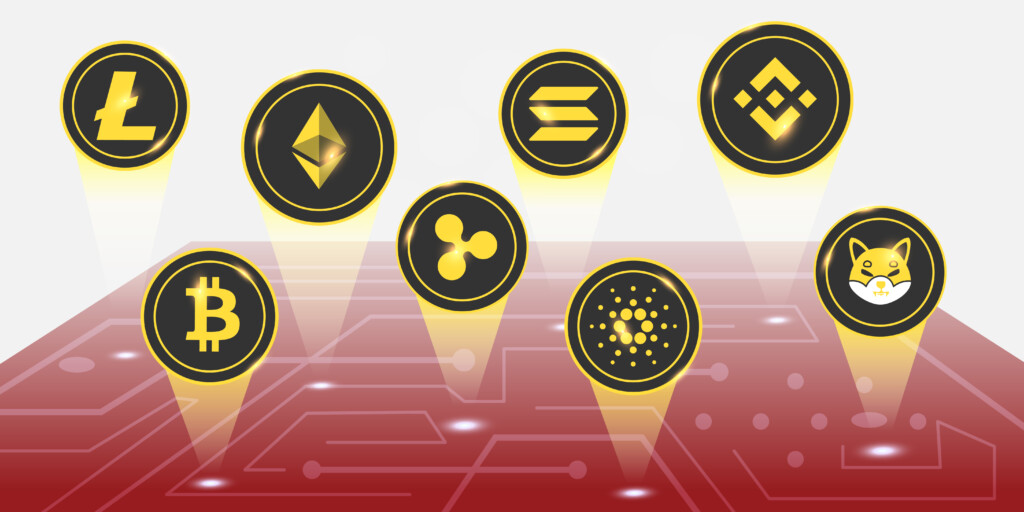
Cryptocurrency, also known as a digital asset, is a type of money that relies on cryptography to secure and verify transactions rather than a central bank. The first crypto to be created is Bitcoin. Cryptocurrencies use decentralized control as opposed to centralized electronic money and central banking systems. Decentralized control is obtained through peer-to-peer transactions on a blockchain network. Since they are decentralized, they are largely unregulated (except in some regions that have such laws) and transactions made using cryptocurrency cannot be reversed. The elimination of middlemen as is the case of the centralized banking system has made cryptocurrency popular, easy to use, transparent, and secure.
Escrow Fee
Escrow fees are used to pay for the cost of the escrow service.
Ethereum (ETC)
Ethereum is a blockchain-based open software application that allows developers to create and implement decentralized software solutions. Ethereum is a publicly decentralized blockchain-based network, much like Bitcoin. The Ethereum block chain technology is designed to execute any decentralized application’s source code. On the Ethereum blockchain network, Ether, the network’s native token is mined rather than bitcoin.
Exchange
An exchange or cryptocurrency exchange is a digital marketplace where traders can buy and sell crypto using different fiat currencies or altcoins. Cryptocurrency exchange platforms match buyers with sellers. Like a traditional stock exchange, traders can opt to buy and sell cryptocurrency by inputting either a market order or a limit order.
Fiat
Fiat currency, also known as fiat money, is money that a government has deemed legal tender but is not backed by any real assets. In contrast to the value of the raw materials used to create the money, the worth of fiat money is determined by the supply and demand relationship. Fiat money is only valuable if the government upholds it or if two parties concur on its value. When fiat currency first emerged, it was intended to replace money backed by commodities.
Hash
- A Bitcoin transaction’s unique id.
- A mathematical equation that Bitcoin miners apply to blocks to secure the network.
- Hashes are fixed in length making it nearly impossible to determine the hash length if someone were attempting to break the blockchain.
Hot Wallet
A Bitcoin wallet that is located on a machine with an internet connection is referred to as a hot wallet. A hot wallet is typically one that is set up on a desktop or smartphone. A hot wallet can be accessed online and it makes cryptocurrency transactions easier for both the holder and the users.
Ledger
A physical or electronic logbook containing a list of transactions and balances typically involving financial accounts. The Bitcoin blockchain is the first distributed, decentralized, public ledger.
Margin
The margin is the sum added to the actual cost to arrive at the final sale value or gross profit. Both a fiat dollar amount and a percentage can be used to calculate it. Positive and negative margins are both possible, and a negative margin indicates that you anticipate the buyer to pay less than the item’s cost price.
Miner
A computer or collection of computers that updates blocks with new transactions and validates blocks made by other miners. In exchange for their efforts, miners receive new bitcoins after collecting transaction fees. This process of confirming and updating transactions in the blockchain helps to secure the Bitcoin network and maintains its own integrity.
Mining
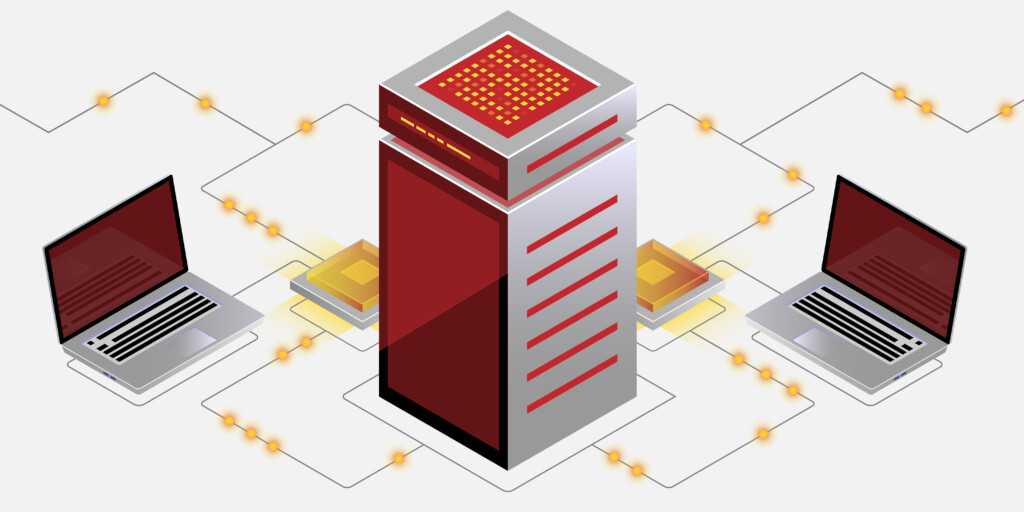
Bitcoin mining refers to the process of performing mathematical and complex computations on computer hardware for the Bitcoin blockchain to verify transactions. In addition to receiving bitcoin for each verified block, miners also receive charges for the transactions they confirm. The process of solving blocks is called mining. As more people begin using Bitcoin, the difficulty of finding valid blocks has increased significantly. To solve a block, miners perform complex mathematical calculations using computer equipment that is specifically designed for that purpose. This type of computing power is called hashing power or hash rate.
Offer
The price that the seller claims they want for a specific stock or asset is known as the offer price. Offers can either be buy or sell offers. A buy offer is a market offer put forth by people looking to purchase cryptocurrencies in return for a different form of payment, while a sell offer refers to users that wish to trade cryptocurrencies for a specified payment method.
Offer Terms
An offer term(s) is a brief explanation of the conditions that must be met before a trade can take place. Buyers might specify any additional information necessary to finalize the transaction of the offer in the offer term. The selected payment method of the buyer and a list of tasks that the seller must do to complete the transaction are frequent components of an offer term.
Peer-to-Peer
Peer-to-Peer is a type of network where participants communicate directly with each other rather than through a centralized server. The Bitcoin network is a peer-to-peer network.
Pegged currency
The value of this currency is intended to remain constant as an assigned asset. The phrase “pegged” in the context of cryptocurrencies typically refers to a digital asset whose value is directly linked to the value of a reliable traditional currency, such as the US dollar or the euro. A stablecoin, or a cryptocurrency tethered to a fixed price.
Price Point
A price point is a product’s suggested list price that is chosen in a manner that competes with the costs of similar goods. A product may have a set price when it is first released, but that price may change based on market conditions and rivalry. Every exchange platform establishes its price points, and some price points could not be accessible to the general public.
Private Key
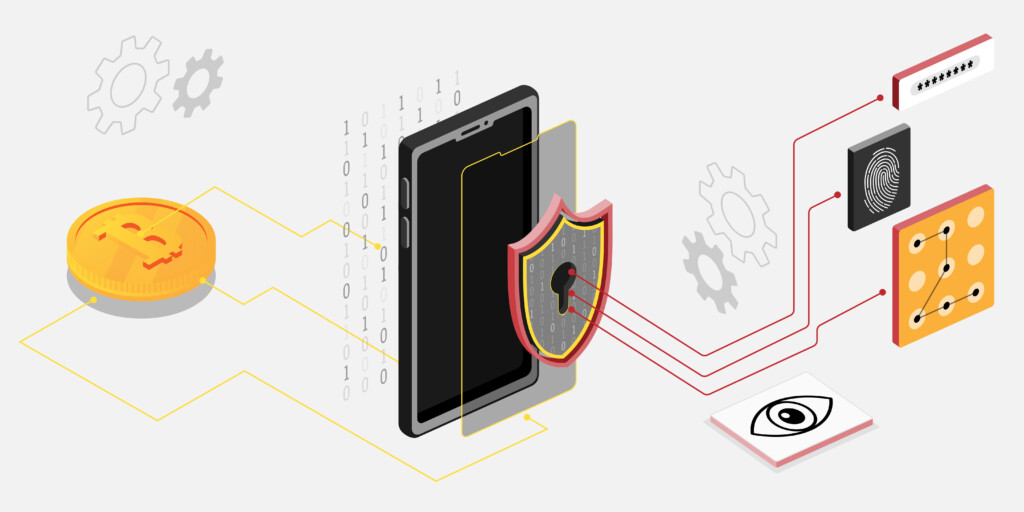
A private key is a collection of characters and numbers that demonstrates your ownership of Bitcoins stored in a particular wallet. Consider a private key to be similar to a password. Private keys are what enable you to transfer Bitcoins from your wallet via a cryptographic signature, thus they shouldn’t be shared with anyone. It is comparable to your online banking password.
Public address
A public key’s cryptographic hash is used to create a public bitcoin address. Typically, a public address begins with “1.” A public address is comparable to an email address. Similar to how emails may be delivered to email addresses, they can be distributed anywhere and receive bitcoin.
Public key
A collection of characters and integers that originates with a private key. Using a public key, one can receive Bitcoin. A Bitcoin private key is an integer, which can be thought of as a random number generator. The bitcoin network uses these keys to create new bitcoins, verify transactions between users, and detect fraud.
Public receipt
A message proving that the traded Bitcoin has been received and the trading or transaction is successful.
Seller (Vendor)
Someone who trades their cryptocurrency is known as a seller or vendor. As soon as the seller has confirmed the payment, they are required to instantly transfer the crypto assets out of escrow. The bitcoin will stay in escrow if the vendor or seller does not release it.
Tether (USDT)
Tether (USDT) is a stablecoin that is pegged to the American dollar (USD).
Transaction
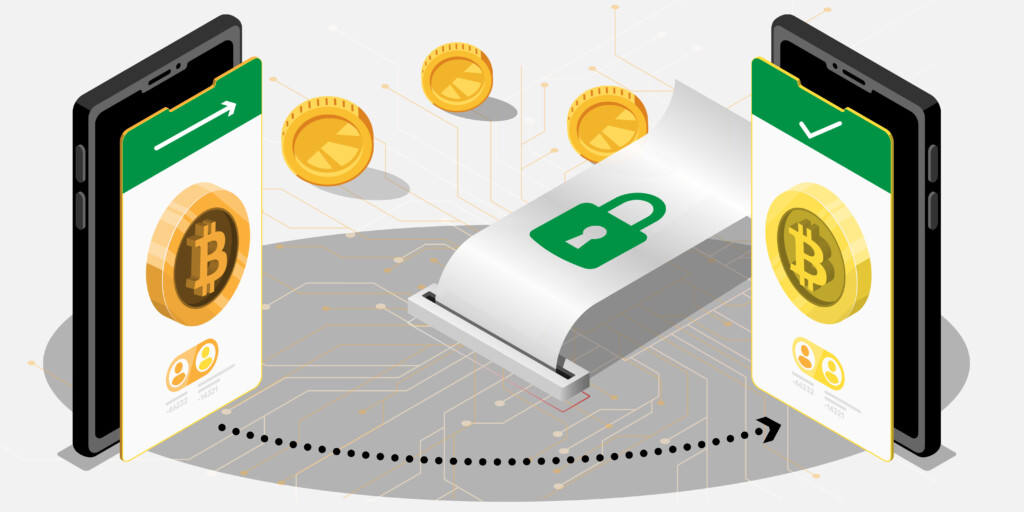
A transaction is a blockchain entry that specifies a Bitcoin transaction from one wallet to another. Sending and receiving data between Bitcoin addresses constitutes a transaction. In the same way that you move money from one party to another in a typical financial transaction, you do the same thing with Bitcoin by transferring information (Bitcoin) between each other.
Transaction Fee (Miner’s Fee)
A transaction fee, also called a “miner’s charge,” is a sum of crypto taken from each transaction by the miner. The miner’s fee is determined by current market conditions and the amount of computational power needed to validate blocks (i.e., confirm transactions).
Transaction ID (TXID)
A Transaction ID or TXID is an identification number for a Bitcoin transaction. It is an alphanumeric string that labels each transaction within the coin’s blockchain.
Trusted/Blocked
Trusting other users is an effective way to keep in touch with buyers and sellers you have had positive experiences with. The offer page will then display their offers in order of priority. The Offer Page is a great way for you to manage your offers and stay in touch with potential buyers and sellers. This will allow you to build trust and make it easier to sell or purchase cryptocurrencies. An excellent strategy to avoid buyers or sellers you’ve had unpleasant experiences with is to block them. They won’t see your offers if you’re selling cryptocurrencies. You won’t be able to view their offers if you’re purchasing cryptocurrency.
Wallet
A wallet is a repository of private Bitcoin keys used to make purchases. A Bitcoin wallet, like currency notes in your physical wallet, is a virtual wallet where you may safely store, transmit, and receive Bitcoin. There are several different types of wallets, including hot and cold wallets. Hot and cold wallets are two types of storage for cryptocurrencies. A hot wallet is a type of online wallet that allows you to send and receive money from your cryptocurrency account, but does not store the actual cryptocurrency. When you make a transaction, it goes into an escrow account for security purposes. Cold wallets are offline wallets that hold the actual cryptocurrency.




